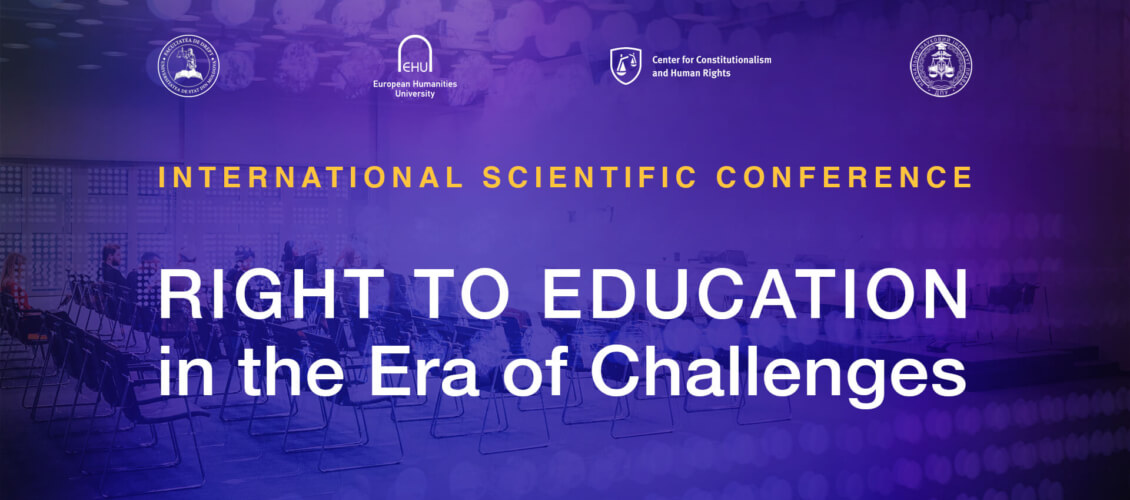Post-Release: International Scientific Conference “Right to Education in the Era of Challenges” January 23 – 25, 2025

From January 23 to 25, 2025, the Academic Department of Social Sciences at the European Humanities University (EHU) successfully hosted the International Scientific Conference “Right to Education in the Era of Challenges”. This significant event brought together scholars, educators, and legal experts from around the world to examine the evolving landscape of the right to education amidst contemporary global challenges.
The conference featured engaging discussions, keynote speeches, and expert panels on critical issues such as education in war-affected regions, the role of artificial intelligence in learning, and the complexities of ensuring academic freedom and accessibility. The event served as a crucial platform for in-depth analysis and future-oriented dialogue on the right to education in an era of rapid technological and societal change.
January 23: Opening and Key Discussions
The first day of the conference set the stage with thought-provoking keynote addresses that explored the fundamental role of education in shaping individuals and societies. Speakers examined how educational programs are being implemented worldwide, the methodologies ensuring their success, and the increasing influence of artificial intelligence in education.
Panel discussions delved into the opportunities and challenges of formal, informal, and non-formal education, as well as the impact of Russia’s aggressive war against Ukraine on educational accessibility. The importance of academic freedom, particularly in the Global South, was a key focus, along with pathways for advancing international legal frameworks supporting the right to education.
A central theme emerged: universities play a transformative role in fostering human dignity, promoting peace, and facilitating intercultural communication. Education should move beyond competition and towards cultivating respect among individuals, nations, and states. As technology advances, it is crucial to establish legal mechanisms that address both current challenges and long-term implications for sustainable development. Ensuring equitable access to education in the digital age is essential to prevent new forms of discrimination and exclusion.
January 24: AI and the Future of Education
The second day of the conference coincided with the International Day of Education and focused on the transformative role of artificial intelligence in education. In alignment with UNESCO’s global initiatives, experts and students explored AI’s potential in revolutionizing learning environments. Discussions ranged from AI-driven chatbots supporting university education to broader implications of AI in academia and society.
Speakers emphasized the need for AI literacy, critical thinking, and ethical integration of AI tools in both teaching and administration. The conference concluded with several key recommendations, including the establishment of an AI Lab at EHU, further research into AI’s impact on education, and the development of institutional policies ensuring responsible AI use.
January 25: Belarusian Language, Law, and Education
On the final day of the conference, the Center for Constitutionalism and Human Rights hosted a dedicated panel on the status of the Belarusian language in education and lawmaking. Experts discussed the challenges and opportunities related to legal education in the Belarusian language and its legislative framework.
The discussions highlighted EHU’s potential role in advancing Belarusian-language legal education and fostering its development within academic and legislative contexts. Additionally, insights were presented on the study of the Belarusian language and Slavic studies in the context of migration, emphasizing the importance of strengthening cooperation between EHU and the Belarusian diaspora.
The conference concluded with a call for continued collaboration on preserving language, culture, and education in a globalized world. The discussions underscored the importance of interdisciplinary approaches in safeguarding the right to education and ensuring its relevance in an era of rapid change.
The Academic Department of Social Sciences extends its gratitude to all participants, speakers, and organizers for their invaluable contributions to this landmark event. We look forward to continuing these critical conversations and fostering international cooperation in the field of education and human rights.